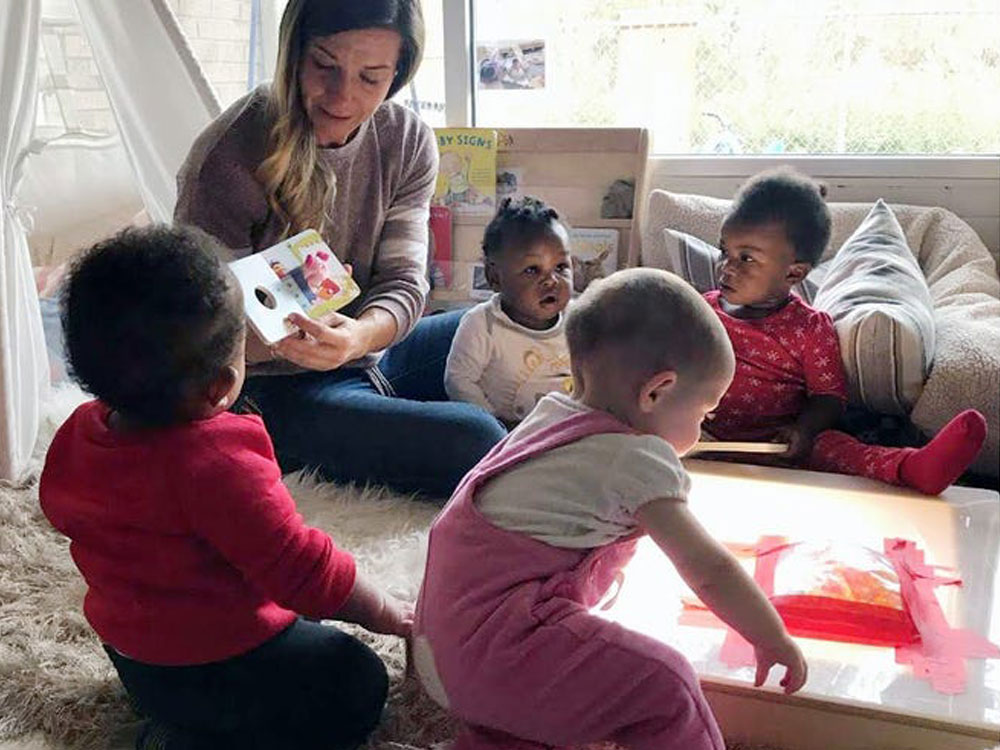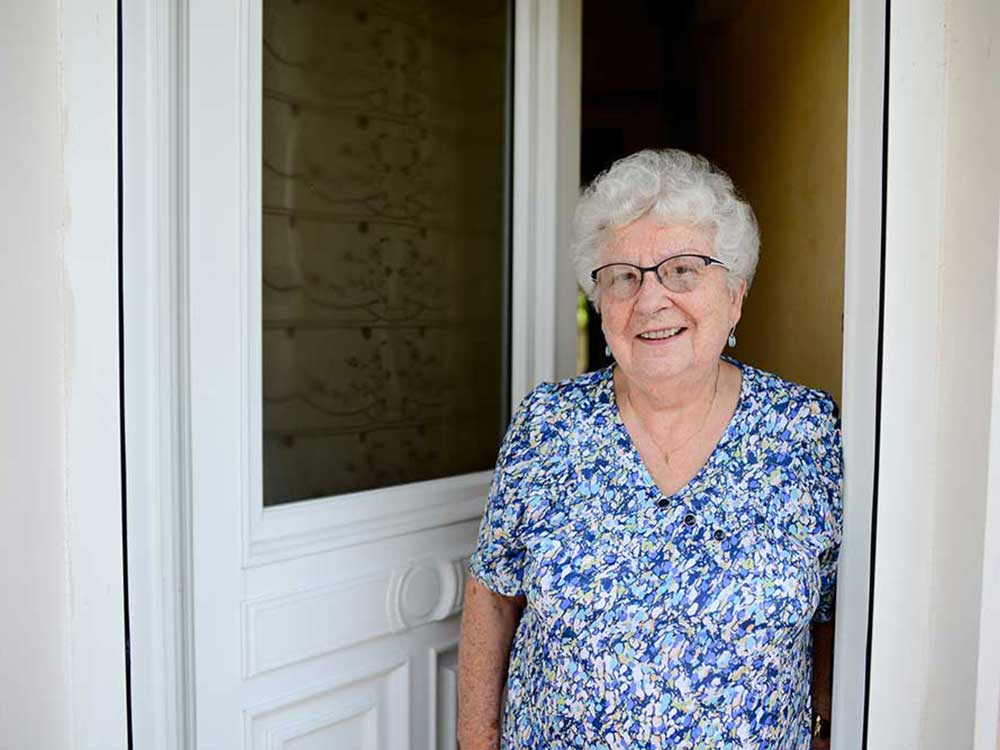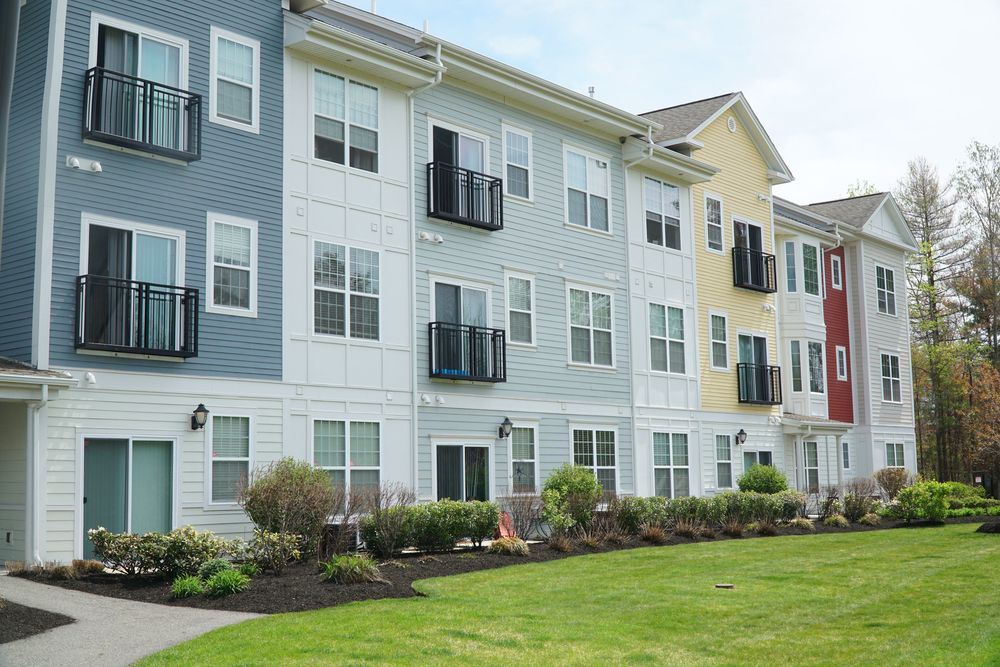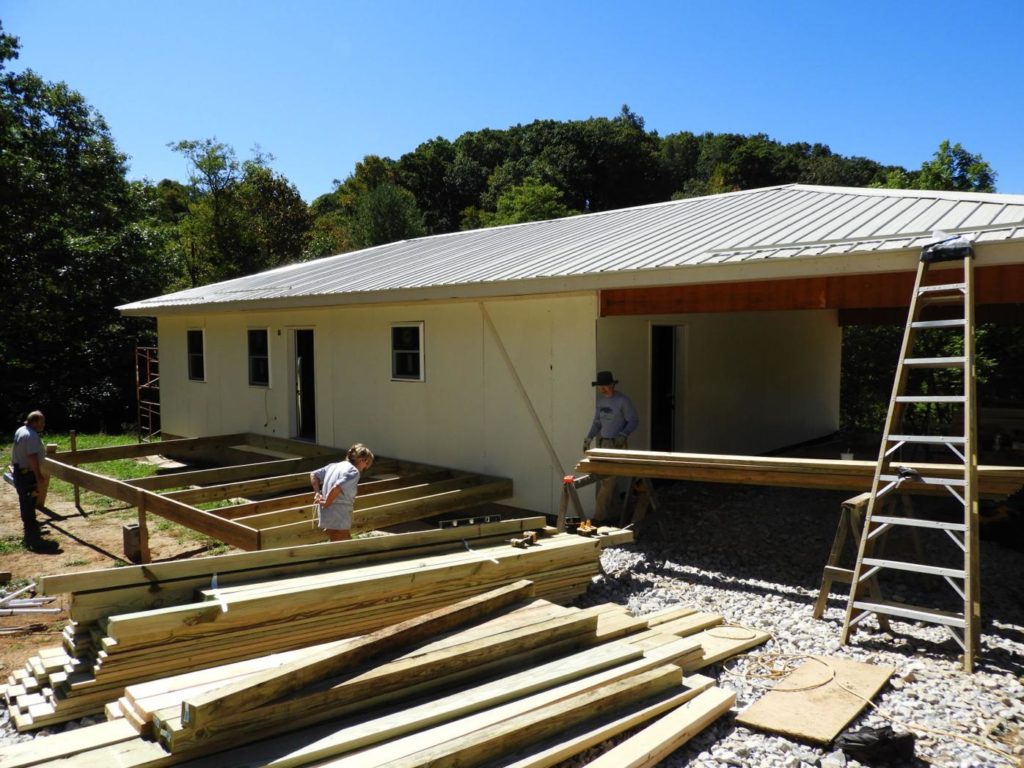ASHEVILLE, N.C. (August 23, 2018) – Dogwood Health Trust (“Dogwood”), a recently formed North Carolina nonprofit, private non-operating foundation, announces additions to its initial Board of Directors. Dogwood Health Trust will become operational only if the contemplated transaction between HCA Healthcare and Mission Health is finalized.
“When selecting Board members, we’ve taken into account skill, competence, willingness, time and capacity to serve as well as geographic diversity,” said Janice Brumit, Founding Chair of the Dogwood Health Trust. “Most importantly, Board members must have a firm commitment to our bold mission to dramatically improve the health and well-being of all people and communities in Western North Carolina and understand they do not serve on behalf of any particular geography, but rather as a fiduciary steward to ensure that Dogwood’s mission is achieved for everyone in every community across this region.”
In addition to Ms. Brumit as its Chair, Jack Cecil, President of Biltmore Farms, will serve as Dogwood Health Trust’s Vice Chair. The other selected Board members are:
- John R. Ball, MD, JD (Buncombe County)
- Michell Hicks, CPA (Qualla Boundary)
- Sam Lupas (Jackson County)
- George Renfro (Buncombe County)
- Robert C. Roberts (Buncombe County)
- Wyatt S. Stevens, JD (Buncombe County)
- Martha Tyner (Yancey County)
Ms. Brumit, Mr. Cecil and the seven other initial Board members will select the additional directors as the Dogwood Health Trust develops its vision and strategic plan. An on-line process has been established to receive nominations. Currently, there are Board members from Buncombe County, Jackson County, Yancey County and the Qualla Boundary, and Dogwood anticipates building an initial board of 12 to 15 members comprised of members residing throughout the region. Board members’ terms will be staggered to allow for ongoing change over time.
A broader public announcement discussing more about the DHT is currently planned for September 30, 2018. In the meantime, DHT is seeking applications from potential Board members. Criteria established for DHT Board Members and a formal application process will be available at: www.DogwoodHealthTrust.org on or before August 1, 2018.
Under Ms. Brumit’s leadership, the Board will embark on a multi-year process preparing to achieve its purpose, including becoming fully educated about the history and lessons learned from prior healthcare conversion foundations, obtaining all necessary approvals required for operation, developing appropriate staff and infrastructure, and carefully assessing both the strengths and needs of all people and communities across the 18 counties of Western North Carolina. Dogwood’s goal is to partner with local nonprofit organizations to analyze, understand and address core social determinants of health and well-being for the people and communities of Western North Carolina, including helping local organizations build or expand their capacity to be effective collaborators within their own communities.
“What we have learned from numerous others with deep experience in this area is that the single most important thing for the Board to do at this stage is to be deliberate, focused, strategic and not driven by an artificial timeline,” Ms. Brumit said. “The activity associated with creating and eventually operating Dogwood Health Trust will involve engaging the community in a collaborative, multi-year process.”
Further information will be made available at an event scheduled for September 30, 2018. In the meantime, Dogwood Health Trust Board members will continue basic structural work and accept applications for potential Board members. Criteria and the nomination application are available at: www.DogwoodHealthTrust.org.
About Dogwood Health Trust
Dogwood Health Trust is a North Carolina not-for-profit corporation with the sole purpose of dramatically improving the health and well-being of all people and communities across Western North Carolina. Dogwood Health Trust, a conversion foundation, will be the successor of the not-for-profit Mission Health System should the proposed transaction with HCA Healthcare be finalized.
Appendix: Board Member Biographies
JANICE BRUMIT, CHAIR
Janice Brumit was born in Boone, NC, a town located in the Blue Ridge Mountains of Western North Carolina. She graduated from Appalachian State University. As a native of Western North Carolina, Mrs. Brumit has strong ties to the people and communities of our region and has spent the last 30 years serving on various local and state-wide nonprofit boards to improve the lives of its citizens. She has a passion for education, children and access to quality healthcare. She believes that strengthening families, economic opportunities, and education are key to building strong communities. Mrs. Brumit, along with her husband Joe Brumit, owns and operates 51 Arby’s Roast Beef Restaurants in North Carolina and Upstate South Carolina. In Western North Carolina, the Brumits have restaurants located in Buncombe, Henderson, Haywood, Swain, Macon, McDowell, Burke, Madison, Transylvania, Watauga and Rutherford counties. Mrs. Brumit has received numerous awards for her community service, including the Mountain Child Advocacy Award and the North Carolina Hospital Association Trustee Merit Award in 2017. Her current and prior regional Board service includes Asheville Area Chamber, United Way of Asheville & Buncombe County – Alexis de Tocqueville Society, Blue Ridge Heritage Area, Community Foundation of Western North Carolina, Mountain Area Health Education Center (MAHEC), North Carolina Rural Center, and the UNC-Asheville Board of Trustees.
JOHN F.A.V. CECIL, VICE CHAIR
Jack Cecil, President of Biltmore Farms, LLC, has been in the community development business for more than 30 years. He joined Biltmore Farms, a 4th generation family-owned business, in 1984 and has served as its President since 1992. Mr. Cecil received his undergraduate degree from UNC-Chapel Hill and earned his M.I.M. from the American Graduate School of International Management in Glendale, Arizona. Mr. Cecil currently serves as a Trustee of The Duke Endowment; Director of SCANA Corporation; Director of Barron Collier Management, LLC; Board of Directors of The Research Triangle Foundation of N.C.; Board of Directors of the NC GlaxoSmithKline Foundation; Chair and Member of the National Advisory Board of the Institute for Emerging Issues; Chair, WNC Regional Advisory Board of Wells Fargo Bank, N.A.; and Governor, Urban Land Institute Foundation. In addition to having been actively involved with Mission Health for over 18 years, chairing Mission’s Board of Directors in 2007-2008. Mr. Cecil has previously served on the Boards of Directors for UNC Board of Governors, UNC-Asheville Board of Trustees, N.C. Economic Development Board, NC Biotechnology Center, Asheville Area Chamber of Commerce & Economic Development Commission, HandMade in America, and United Way of Asheville & Buncombe County. He has been happily married to Sarah Mettler Cecil since 1993, and they have four wonderful sons.
JOHN R. BALL, MD, JD
Dr. John Ball is a former medical executive, having served as chief executive officer of the American College of Physicians, the American Society for Clinical Pathology, and Pennsylvania Hospital, and as Interim President of the Milbank Memorial Fund. He is the current chair of the Mission Health Board. Dr. Ball received M.D. and J.D. degrees from Duke University, where he also took a residency in internal medicine. He was a Robert Wood Johnson Foundation Clinical Scholar at George Washington University. Following clinical training, Dr. Ball spent six years in the U.S. Public Health Service, three of which were in the Office of Science and Technology Policy, Executive Office of the President. While at Pennsylvania Hospital, Dr. Ball guided the nation’s first hospital through a merger with the University of Pennsylvania Health System and oversaw the creation of a conversion foundation. He is an elected member of the Society of Medical Administrators, the American Clinical and Climatological Association, and the National Academy of Medicine (formerly the Institute of Medicine). Previous nonprofit board service includes Pennsylvania Hospital, Healthcare Association of Pennsylvania, Delaware Valley Healthcare Council, Sun Valley Forum on National Heath, and Presbyterian Medical Mission Fund. He is married to Jean Dillon, and they live in Asheville.
MICHELL HICKS, CPA
Michell Hicks, CPA, has served the Eastern Band of Cherokee Indians (EBCI) for nearly 30 years. A three-term Principal Chief of a sovereign nation, he has led the 15,000-member tribe through a period of remarkable economic, developmental and cultural advancement, and he has established himself as a national leader in “Indian Country” by initiating and maintaining multiple relationships with Tribal leaders, banking and financial institutions, federal and state officials, and national political leaders. Principal Chief Hicks has been continuously recognized for his exceptional leadership and accomplishments. He has been awarded the Tribal Gaming Visionary and Small Business Empowerment Award by the National Center for American Indian Enterprise Development; Tribal Leader of the Year by the Native American Finance Officers Association; and the Professional Achievement Award by his alma mater, Western Carolina University. In 2015 he was awarded an Honorary Doctorate of Humane Letters from the UNC-Asheville. Principal Chief Hicks is a graduate of Western Carolina University and has been a North Carolina Certified Public Accountant for over 20 years. He has spent many years coaching girls’ basketball in the local Cherokee and Asheville communities, and is an enrolled member of the Eastern Band of Cherokee Indians.
SAM LUPAS
Sam Lupas has been involved in the Cashiers real estate industry for more than 25 years as an investor, developer and broker, and as the founding partner of Landmark Realty Group. Mr. Lupas is an active member of the community having served on the Board of Trustees at The Summit Charter School, The Cashiers Community Foundation, The Village Conservancy, The Village Council, and the Highlands-Cashiers Hospital Board. Specializing in investment and development properties, Mr. Lupas brings an experienced perspective to the Dogwood Board as the developer of Lake Glenville and Cashiers area communities, as well as many in-town commercial properties. Mr. Lupas is a graduate of The Hill School and The University of Vermont. He lives in Glenville with his wife, Wendy, and their three children.
GEORGE D. RENFRO
George Renfro is the retired co-owner and COO of Coca-Cola Bottling Company Affiliated, Inc., which covered all 18 counties of Western North Carolina (plus the counties surrounding Hickory and North Wilkesboro), South Carolina west of Columbia, and northern Georgia. He currently serves on the Board of Trustees at Wake Forest Baptist Medical Center, Chairs the Mission Health Investment Committee, and serves on the Buncombe County Vulnerable Care Task Force. Mr. Renfro grew up in Yancey County and graduated from Cane River High School. He graduated from Mars Hill College with a Bachelor of Science in Accounting and a minor in Math. Over the past 43 years, Mr. Renfro has served on the Boards of Directors for numerous organizations including: Daniel Boone Council of Boy Scouts; United Way of Asheville & Buncombe County; Mars Hill College; UNCA Foundation; Community Foundation of Western North Carolina; North Carolina Kidney Foundation; Mission Hospital McDowell; Angel Medical Center; ABCCM; and the Macon County Vulnerable Care Task Force. Mr. Renfro and his wife, Donna, have two children and four grandchildren.
ROBERT C. ROBERTS
Bob Roberts is the Regional Executive Vice President for First Citizens Bank & Trust Company and has 33 years’ experience in the banking and financial business. In his current role as Regional Executive Vice President, he has management and oversight of 104 branch locations across four states (NC, VA, TN and WV) totaling roughly 700 associates. In North Carolina, his responsibilities cover the 28 western-most counties plus the Cherokee Indian Reservation, and in Virginia, his responsibilities cover 19 counties across the state from Richmond to Roanoke. Mr. Roberts is very active in several community organizations currently serving on the Board of Trustees at Western Carolina University, as current chairman of the Greater Asheville Regional Airport Authority, and past chairman of the Mission Health Board. Previously, Mr. Roberts served on the Boards of Directors for Eblen Charities, A-B Tech Foundation, UNC-Asheville Foundation, NC Community Foundation of Cherokee County, YMCA of Western North Carolina, the United Way organizations for Transylvania County, Cherokee County, Canton, and Asheville & Buncombe County, the Salvation Army, and the Economic Development Coalition. Mr. Roberts graduated from UNC-Chapel Hill. He and his wife, Carol, have three children.
WYATT S. STEVENS, JD
Wyatt Stevens, an Asheville native, is a shareholder in the law firm of Roberts & Stevens, P.A. with over 23 years of experience in complex personal injury litigation and commercial litigation. Mr. Stevens has represented individuals, businesses and organizations, and he regularly travels throughout Western North Carolina handling legal matters in each of the 18 counties served by Mission Health. Former clients include Swain County and the Eastern Band of Cherokee Indians, and current clients include The Biltmore Company, Ingles Markets, Inc., the North Carolina Ski Areas Association and numerous other individuals and businesses throughout the region. Mr. Stevens is AV Peer Review Rated by Martindale-Hubbell, has been recognized in Business North Carolina magazine’s Legal Elite, and his peers have honored him as a North Carolina Super Lawyer. He received both his law degree and his undergraduate degree from UNC-Chapel Hill. In addition to serving as a Director of Asheville Savings Bank for 14 years, Mr. Stevens has served on several nonprofit Boards of Directors including Buncombe Partnership for Children, Friends of the Smokies, Mission Health (Immediate Past Chair), Mountain Housing Opportunities, Nature Conservancy of North Carolina, and Pisgah Legal Services. He and his wife, Kim Stevens, have two children.
MARTHA TYNER
Martha Tyner is employed by her family’s business, Tyner Construction Company, Inc., which has locations in Burnsville, NC and Asheville, NC. She has worked as a Project Manager, Corporate Secretary, Office Manager, Customer Relationship Specialist, and currently serves as its Business Controller. Ms. Tyner attended Asheville City Schools and graduated from Western Carolina University. She has been a member of the Blue Ridge Regional Hospital Board of Directors since 2010 and has served as Vice Chair and Chair, a position she currently holds. From 2003-2007, Ms. Tyner served on the Blue Ridge Regional Hospital Foundation Board. During her free time, she enjoys cycling, hiking and being outside and also teaches a Spin Class at Blue Ridge Fitness Center in Burnsville NC. Ms. Tyner is married to Harrison Tyner and together they have been community and Blue Ridge Regional Hospital advocates for many years. They have two adult children, a son and a daughter.


















